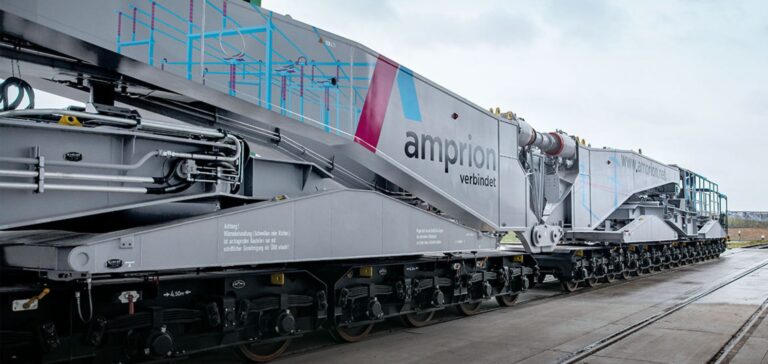The German company Amprion, operator of the electricity transmission network, continues to grow and accelerates its expansion. In the past fiscal year, investments reached a new record of approximately 1.5 billion euros. Over the next five years, the company plans to invest about €22 billion in the transmission grid to cope with the accelerated expansion of renewable energy and the transformation of the energy system.
Amprion adjusts its investments
Investments are focused on the expansion of important north-south DC corridors onshore and the completion of the first four Amprion offshore grid connection systems. The company awarded the world’s first two gigawatt offshore grid connection systems, BalWin1 and BalWin2, due to acceleration targets set by the German government, and plans to bring them online two and three years earlier than planned, in 2029 and 2030, respectively.
In 2022, Amprion invested a record €1.5 billion in network infrastructure expansion and conversion, about 15% more than the previous year. The company obtained permits for more than 200 kilometers of network and was able to complete 115 kilometers of network, more than ever before. For the underground cable project from Rastede to Bürstadt (DC 34), the company expects to submit planning approval documents by mid-2024, accelerating by two years.
Amprion in full expansion
To achieve these goals, Amprion continues to grow. The number of employees increased by 8.5% over the previous year, reaching 2,237 employees (full-time equivalent). For the current year, the company expects to hire up to 400 additional employees, a growth of approximately 18%.
IFRS-compliant revenues increased by 36.6 percent year-on-year to approximately 3.5 billion euros. Revenues from the network, Amprion’s core business, increased by 18.6 percent to approximately EUR 2.1 billion. Investments in 2022 continue to focus on network expansion, with more than 80% of investments being expansion investments. As a result, the regulated asset base (RAB), which forms the basis for future revenues, increased by almost 28% to approximately
Amprion’s costs increase under control
Despite these positive results, the increase in the costs of system services, such as interventions to stabilize the power grid, was twice as high in 2022 as in 2021, reaching approximately 2.4 billion euros. The costs are covered by the regulations and are returned to Amprion with a delay, so it is a temporary expense for the IFRS results. Thus, adjusted EBITDA for the past fiscal year amounted to 772.6 million euros (previous year: 867.0 million euros) and adjusted net profit to 228.2 million euros (previous year: 260.6 million euros). Adjusted key figures take into account temporary regulatory effects and the accrual-based presentation of system services. The decrease is due to the cancellation of congestion revenues, the amount of which depends on external factors. Nevertheless, the adjusted consolidated net income is at the average level of previous years. For the current fiscal year, Amprion expects a stable business performance and an investment requirement of approximately EUR 2.8 billion.






















